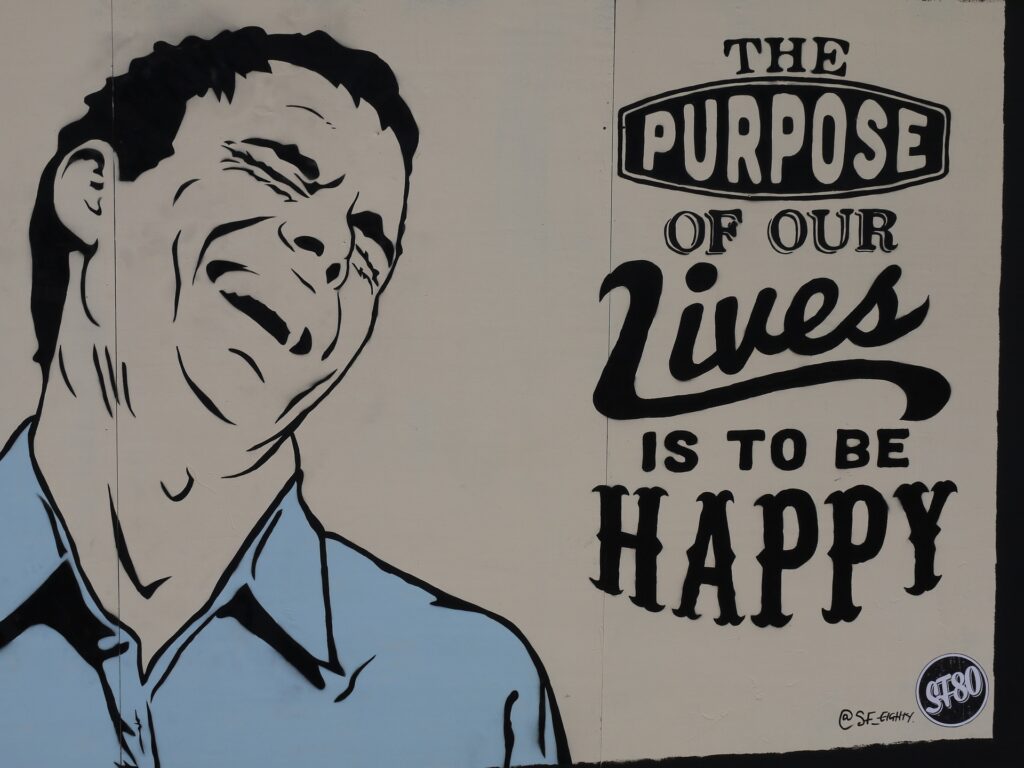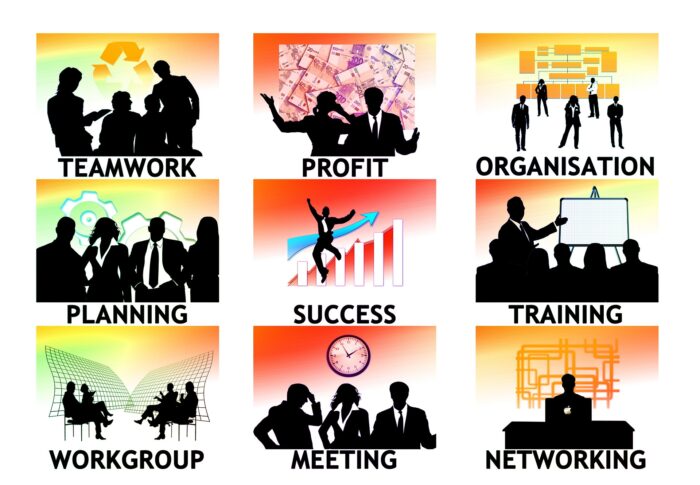
What are the 5 pillars of Ikigai for success?
Ikigai (ee-key-guy) is a Japanese concept that combines the terms iki, meaning “alive” or “life,” and gai, meaning “benefit” or “worth.”
When combined, these terms mean that which gives your life worth, meaning, or purpose.
Ikigai is similar to the French term “raison d’etre” or “reason for being.”
The concept of ikigai is said to have evolved from the basic health and wellness principles of traditional Japanese medicine. This medical tradition holds that physical well-being is affected by one’s mental–emotional health and sense of purpose in life.
Ikigai also resonates with Cognitive–Behavioral Therapy’s emphasis on pursuing activities that produce enjoyment and a sense of mastery, specifically as a way to alleviate the depressive disorder.
Ikigai also appears related to the concept of flow, as described in the work of Hungarian–American psychologist Mihaly Csikszentmihalyi. For Csikszentmihalyi, flow occurs when you are in your “zone,” as they say of high-performing athletes.
Flow is a string of “best moments” or moments when we are at our best. These best moments “usually occur when a person’s body or mind is stretched to its limit, in a voluntary effort to accomplish something difficult and worthwhile” (Csikszentmihalyi, 1990).
Flow can be said to occur when you are consistently doing something you love and that you are good at, with the possible added benefit of bringing value to others’ lives. In such a case, flow might be seen as in tune with your ikigai, or activities that give your life meaning and purpose.
It is important to note that ikigai does not typically refer only to one’s personal purpose and fulfillment in life, without regard to others or society at large.
Although it has had some historical shifts in meaning, ikigai has usually been cited as both a personal pursuit and one of benefit to others. In the end, ikigai brings meaning, purpose, and fulfillment to your life, while also contributing to the good of others.
Further, it is said that everyone has an ikigai – their particular intersection of passion, talent, and potential to benefit others. It is only a matter of finding it. The journey to ikigai might require time, deep self-reflection, and effort, but it is one we can all make.
The entire concept of ikigai is based on the five pillars of Japanese Philosophy. Let us learn the five pillars of ikigai:
5 pillars of ikigai.

PILLAR #1: STARTING SMALL.
According to Ikigai, It doesn’t matter what you do. Mopping the floor, organizing papers, or talking to a client. Treat the work you do as if you were the most efficient person on this planet. Do it diligently & carefully. Be attentive and focus on attaining the best results you can at the moment.
To start small can mean thinking about the present moment, one step at a time. To partake in activities and put your whole effort into them. You’ll find that success will come in due time by doing this.
The key to starting small is to focus on what you can do now instead of waiting for the “big” change that will magically make your situation better. This can be applied to everything we do.
PILLAR #2: RELEASING YOURSELF.
Releasing yourself can mean freeing yourself from fears, guilt, external expectations, ego, and responsibilities, pretty much anything that is no longer serving you.
It means trusting your intuition to guide you in the right direction.
No matter how much work you do, how well you perform, or how long you meditate, you’ll receive no brownie points, no praise. You are not recognized, celebrated, or validated for your performance.
Can you imagine a world like this? Can you imagine social media like this? No likes, no comments on your Insta post. You would only post things that matter to you. Writing those words, clicking that picture, and sharing that message can be genuinely fulfilling if you do it without any external validation.
PILLAR #3: HARMONY AND SUSTAINABILITY.
Harmony and sustainability are crucial when it comes to leading a happy life.
It’s the ability to find balance in every aspect of your life – social, mental, emotional, and even physical. Simply put, finding harmony means finding the cohesion that brings healthy existence between self and others (and the environment).
It means that things are working together, and there is balance.
A mindset with the drive to win can lead to great innovations. The same mindset can also lead to excessive stress and instability, both for individuals and society. After being in the lockdown we all have realized it. The rule ‘Survival of the fittest’ might be applicable to the animal kingdom. However, for us, sustainability is an art of life. A man is like a forest, he’s an individual yet connected and dependent on others for growth.
PILLAR #4: THE JOY OF LITTLE THINGS.
Deep joy comes from inside, and it shouldn’t be dependent on something outside of ourselves. To find joy, we need to listen to our inner voice and find deep-seated reasons for feeling happy.
The joy in little things is the rediscovery and appreciation for all we have – our loved ones, work, health, shelter, etc. It’s about being grateful for what you currently have instead of focusing on what will make your life more complete in the future. And there are so many little things to enjoy in life!
Satisfaction comes when you create something from start to finish/, where people take pleasure and satisfaction in both/ the process and the result.
Whatever your hobby might be: eating vegetables you grow in your home garden, greeting customers with a smile, writing short stories. You are not bound by any standards. You are free to do whatever you want, no matter how insignificant it may seem to others. You must keep at it, every single day. Do at least one thing that you love to do.
PILLAR #5: BEING IN THE HERE AND NOW.
When you’re in the here and now, you are fully present in your life. You have one hundred percent of your attention focused on what is happening right at this moment.
Being in the here and now means to live purposefully. And with purpose – comes happiness.
Work becomes an end in itself, rather than something to be endured /as a means of achieving something else. Finding happiness in one’s efforts and enjoying the journey is the most important challenge in life. Write an article even if no one may read it, and draw a picture when nobody is watching. Workout when nobody is there to see your progress.








Comments
Very interesting info!Perfect just what I was looking for!Raise range
перепродажа аккаунтов купить аккаунт с прокачкой
продать аккаунт профиль с подписчиками
гарантия при продаже аккаунтов маркетплейс для реселлеров
маркетплейс аккаунтов аккаунты с балансом
перепродажа аккаунтов биржа аккаунтов
купить аккаунт с прокачкой заработок на аккаунтах
магазин аккаунтов социальных сетей купить аккаунт с прокачкой
маркетплейс аккаунтов профиль с подписчиками
Social media account marketplace Online Account Store
Database of Accounts for Sale Buy accounts
profitable account sales accounts for sale
buy account sell accounts
database of accounts for sale guaranteed accounts
account selling platform accounts marketplace
buy and sell accounts buy accounts
buy facebook ad account buy facebook ad accounts
buy fb ad account fb account for sale
buy fb bm https://buy-business-manager-acc.org
buy tiktok ads account buy tiktok ad account
Excellent Brooklyn cleaning, ideal for busy Brooklyn families. Spreading the word in the neighborhood. Brooklyn proud.
Dry Cleaning in New York city by Sparkly Maid NYC
For 646jilicom, I gave it a peep. The interface is good. Try your luck at 646jilicom.
Alright mate, gave 82vnbet a go the other day. Website’s slick, easy to navigate, and had a decent flutter. Worth a look if you’re after something new! Check it out here: 82vnbet
Der Willkommensbonus ist eine der attraktivsten Möglichkeiten für neue Spieler, um
mit einem erhöhten Guthaben und häufig zusätzlichen Freispielen zu starten. Spieler
sollten nicht mehr als 10% ihres Gesamtbudgets pro Spielrunde riskieren, um verantwortungsbewusst spielen zu
können. Browser-basierte mobile Versionen sind eine praktische Option für Nutzer, die Spiele bequem unterwegs spielen möchten. Dies erhöht die Flexibilität und Bequemlichkeit für die Spieler und sorgt dafür,
dass sie keine Chance verpassen, an ihren Lieblingsspielen teilzunehmen. Der erste Spieler der Jagd
nach Freispielen erhält 111 Freispiele, während die übrigen 770 Spieler 100 Freispiele
erhalten.
Wenn Sie also ein Spiel ausgesucht haben, bei dem Sie gern echtes Geld einsetzen wollen, schauen Sie sich die Casinos an, die Sie unterhalb des Spielangebots finden können. Am
Glücksspiel ist grundsätzlich nichts auszusetzen, vor allem dann,
wenn wir uns an die Prinzipien des verantwortungsvollen Spielens halten. Wenn Sie also einige der
Spiele auf unserer Liste nicht aufrufen, finden oder starten können,
liegt das möglicherweise an Ihrem gegenwärtigen Standort.
Mit der Blockchain können jene Casinos, die diese Technologie einsetzen, ihren Spielern ein nachweislich faires Spielerlebnis bieten und sicherstellen,
dass die Ergebnisse der Spiele völlig zufällig und manipulationssicher sind.
References:
https://online-spielhallen.de/buran-casino-auszahlung-der-umfassende-leitfaden-fur-spieler/
Most free spins require a minimum deposit, but you may find a few sites offering no-deposit free spins.
For example, a welcome bonus or reload offer may include 50 free
spins on a selected Games Global game. However, online
gambling has some challenges and drawbacks that players must know.
To bring the brick-and-mortar experience online, casinos started offering
live dealer games streamed from a studio with a real person in charge of the gameplay.
If bonuses are your main priority, it might be better for you to proceed to our
list of casino bonuses and browse offers from all online casinos.
Most US online casino players access gambling games through a real money casino Android app or iPhone gambling app.
Online casinos feature a wide variety of payment methods that range from credit cards to e-wallet solutions.
There is a way to try and turn your no deposit bonus amount into
a small fortune. The downside is that the amounts you
can receive are usually deficient, which is why most players quickly lose them.
For example, a bonus might provide you an amount of up to $1,
500, but you have to match it with a deposit of the same value.
References:
https://blackcoin.co/two-handed-pinochle-poker-professional-tips-for-playing-and-winning/
Banking covers cards, e-wallets, POLi and PayID for fast Australian deposits, plus
Bitcoin and stablecoins for rapid withdrawals. Clubhouse casino operates under a Curaçao licence and forms part of the Dama N.V.
24/7 customer support answers common queries rapidly.
PlayCroco, Fair Go Casino, and HellSpin apps offer the best no deposit free
spins for Aussie players \\u2013 typically spins on pokies like Starburst or Big Bass
Bonanza just for signing up. Start your journey at Spinight Casino
with a generous welcome offer featuring a 250% bonus up to $3,750 AUD
and 250 free spins for new players. Spinoloco allows players to set deposit limits, take time-outs, or self-exclude directly from their accounts.
Boost your bankroll on your first deposit by taking advantage of generous
welcome bonuses or free sign-up offers. Welcome bonuses can be trusted when offered by licensed and regulated casinos that operate with
transparency. Pistolo allows players to request self-exclusion or cooling-off periods
via email or live chat, but there are no instant,
in-account tools for setting limits.
Understanding these rules helps you make the most of the bonus and avoid surprises when you want to
withdraw your winnings. These typically include free spins on popular titles like Wolf Treasure or Starburst upon registration. Self-exclusion is available by contacting support,
and links to external help services are offered in the site footer.
These conditions require you to wager the bonus amount a certain number of times
before withdrawing any winnings. Lower requirements make it
easier to withdraw your winnings, while higher ones require more playtime.
While the site uses SSL encryption and reputable game providers, the licence
does not offer the same level of player protection as stricter regulators like the MGA or UKGC.
References:
https://blackcoin.co/find-your-best-casino-online/
casino online paypal
References:
http://urikukaksa.com/bbs/board.php?bo_table=free&wr_id=302186
online poker real money paypal
References:
https://workerrenter.pro/profile/florenciajen47
online slot machines paypal
References:
https://www.vulnerableyouthjobs.ca/companies/2025/
casino paypal
References:
https://africa.careers/employer/top-payid-casino-sites-in-australia-2025-payid-online-casino-deposits/
Having trouble logging into Royal Jeet 365? This might be the login page: royaljeet365login Just a heads up – always double-check you’re on the official site before entering your details.
Để giúp bạn dễ dàng tiếp cận và trải nghiệm các dịch vụ cá cược mọi lúc, mọi nơi, nhà cái đã phát triển ứng dụng di động tiện lợi. slot365 com Ứng dụng này tương thích với cả hai hệ điều hành Android và iOS, mang lại sự thuận tiện tối đa cho người dùng. Dưới đây là hướng dẫn chi tiết cách tải và cài đặt app trên điện thoại di động của bạn. TONY01-06S
betmgm TN betmgm-play betmgm promo
Journey connected you keep sync device across. In ignation casino online, anywhere win everywhere play realms virtual and tables spinning. Journey and joy!
Unveil the magic of mystery bonuses and surprise spins. In ignation casino official website, themed nights add extra flair to your sessions. Dive into the enchantment now!
Dive into the premier world of online gaming where endless fun awaits. Bovada Hot Slots offers top craps and daily promotions for all players.
Big Bass Bonanza — cast, spin, win big! Free spins Big Bass Bonanza massive win feature is where legends are made.